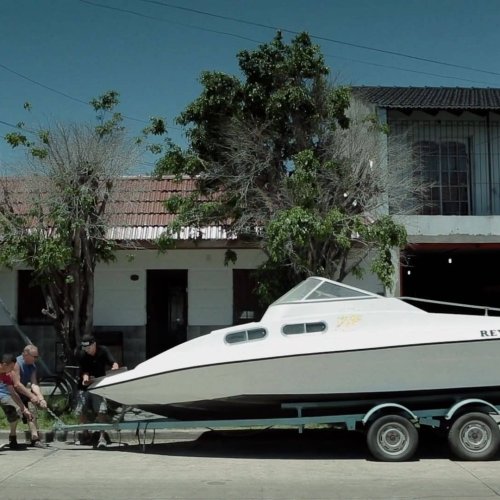Produce
INTINERARY
4
- producción
- dirección
- distribución
- agencia de ventas
- programación
The first step in producing a film begins with the selection of a project and the identification of its specific characteristics and its possibilities for financing and artistic-creative proposal and innovation. The next steps require taking into account the dimension of the project in order to plan a sustainable budget and tailor-made financing. The documentary can be approached in different ways depending on the model it represents, from an artisanal, industrial or self-produced production. At this stage, a crucial task is the development of attractive sales materials (dossier, pitch, teaser) to implement the planned strategy in the competitive ecosystem of funds, grants, markets, forums, festivals and platforms.
Conocer la película antes su nacimiento
- ¿Cuánto conoces de la película antes de hacerla?
- ¿Qué tipo de película crees que será?
- ¿Para qué público irá dirigida?
- ¿Qué tipo de recorrido podrá tener?
- ¿Cómo afecta a la búsqueda de financiación?
- ¿Cómo influye en las primerísimas fases si el proyecto surge desde el/la director/a o si es un encargo o iniciativa de la producción?
Dimensión de la producción: de la autoproducción a la industria
- ¿Cómo reconoces la dimensión que ha de tener la producción?
- ¿Puede una película perder rumbo o coherencia por no tener una producción proporcionada (en relación a la financiación o al diseño de la producción)?
- ¿Qué factores determinan que una película se produzca a un nivel más artesanal o menos industrial?
- Como cineasta, ¿cómo y cuándo decides involucrarte en la producción de tu propia película, a modo de auto producción?
- ¿Cómo te permite optimizar el resultado al ser una autoproducción?
- ¿Cuáles son las particularidades de una producción a esa escala artesanal o autoproducida?
- ¿Y de escala industrial?
- ¿Puedes indicar algunos ejemplos?
- ¿Cómo realizas en este etapa el presupuesto?
Una financiación a la medida
- ¿Cómo se diseña la búsqueda de financiación de una película documental?
- ¿Cuánto de específica es esta tarea para cada película?
- ¿Puedes indicar ejemplos o casos particulares de fórmulas de financiación en tu trayectoria?
- ¿Cómo identificas estas posibles vías de financiación?
- ¿Cómo reformular la estrategia en caso de no conseguir los fondos?
- ¿Cómo valoras el actual panorama de los fondos de financiación para documental en tu contexto, cómo ha evolucionado en los últimos años?
La creación del dossier, teaser y otros materiales
- ¿Es el dossier un elemento creativo o de márketing?
- ¿En qué medida?
- En tu opinión, ¿quién debe participar en la elaboración del dossier?
- ¿Qué elementos de la película hay que trasladar/comunicar/destilar en el dossier, y en el teaser?
- ¿Cómo evoluciona a lo largo del proceso creativo la renovación del dossier para las distintas convocatorias?
Vender tu documental: pitching, mercados y WIP
- ¿Cuáles son las claves para “pitchear” tu proyecto, cómo influye el contexto y el público específico de cada evento en la preparación y ejecución del pitch?
- ¿Cómo identificar en qué mercados/laboratorios presentar tu película?
- ¿Cómo aprovechar al máximo la oportunidad que cada mercado ofrece?
- ¿Puede una película salir adelante y tener un recorrido sin recurrir a mercados en el panorama actual?
- ¿Cuánto se aprende de tu propia película en el recorrido por mercados/laboratorios?
- ¿Cómo hacer mejorar tu película durante este proceso conservando su esencia y libertad autoral?
Once the documentary has been funded, the production team must establish a budget and create an appropriate production plan. As in the artistic field, the unpredictability of working with reality is critical in this organisation, so flexibility in management is essential throughout the three phases: pre-production, filming, and post-production. The selection of the technical team is another key factor, especially in productions where the human factor can be delicate or where deadlines are extended over time. Documentary film production presents unique challenges, such as ethical concerns, rights management, and legal considerations.
Pre-production: Organizing the Unforeseen
- Is production planning compatible with the common unforeseen events of a documentary film? How do you balance these elements?
- Specifically, what implications do unforeseen events have on the management and organisation of resources (schedules, work plans)?
- How do you organise this in your specific case? How do you react to these unforeseen events?
- How does production planning adapt to the needs of a film whose development, direction, or completion time are unknown in advance?
Team Relationships: Direction-Production-Photography-Sound-Editing-Music
- Who (production, direction) and how are the professionals who form part of the team chosen?
- At what stage of the project do they join?
- How are contacts between them established or fostered?
- How do these relationships influence the different stages and the film's outcome?
Specific Challenges of Documentary Filmmaking: Legal Aspects, Rights, Ethical Issues
- What are the specificities of documentary filmmaking in relation to the legal aspects of production?
- How are the rights of the people involved in the films managed and secured?
- How do production documents (rights) reflect the ethical aspects of the representation of these people?
- Can you provide specific examples?
Post-Production Coordination: The Final Cut
- How does the production role evolve throughout the creative process of a film?
- How is the director supported during this process?
- How is the production team involved in the creative decisions of the team?
- How is this aspect reflected in the final cut?
- How do you negotiate with management the responsibility or decision regarding the final cut?
The limited number of screens available for documentary film distribution has a significant impact on how films are presented to the public. As a result, it is critical that we devise an effective strategy for ensuring that the film we are producing is widely distributed. This final stage can be completed independently, through self-distribution, or with the assistance of a sales and/or distribution agency. In both cases, it is critical to identify the film’s target audience, devise a complementary strategy for screenings and viewings in various areas of interest, and create an appealing communication plan to reach the greatest number of viewers.
Selecting a Target Audience for the Film
- How do you re-evaluate the target audience once the film is finished?
- Can that audience be diversified?
- How is this achieved?
- Can you provide examples of specific cases?
Choosing a Sales Agency/Distributor
- What factors determine the involvement of an international sales agency or distributor in each case?
- When is their inclusion ideal?
- What are the optimal qualities for an agency or distributor?
Developing a Strategy
- Can you provide examples of how a strategy is designed for festivals, commercial theatres, cultural exhibitions, platforms and television, and the educational field?
- How specific are these strategies in self-distribution or in dialogue with a distributor?
Communicating Your Film
- How is a communication plan for a documentary film developed?
- Can you provide specific cases?
- What role do elements such as the poster, trailer, and other materials play?
- How is the creative process developed and the team involved in this communication?
Reception: Contact with the Audience
- How does the film grow in its reception with the audience?
- And with specialised critics?
- Can you share some future lessons learnt for a new film from the film screenings?








